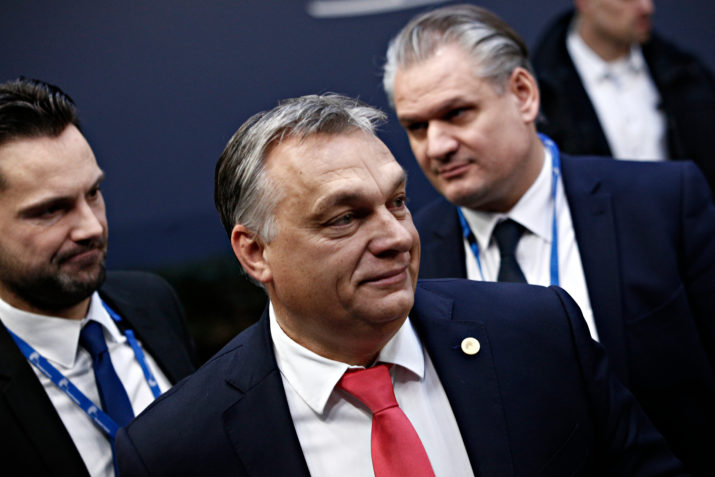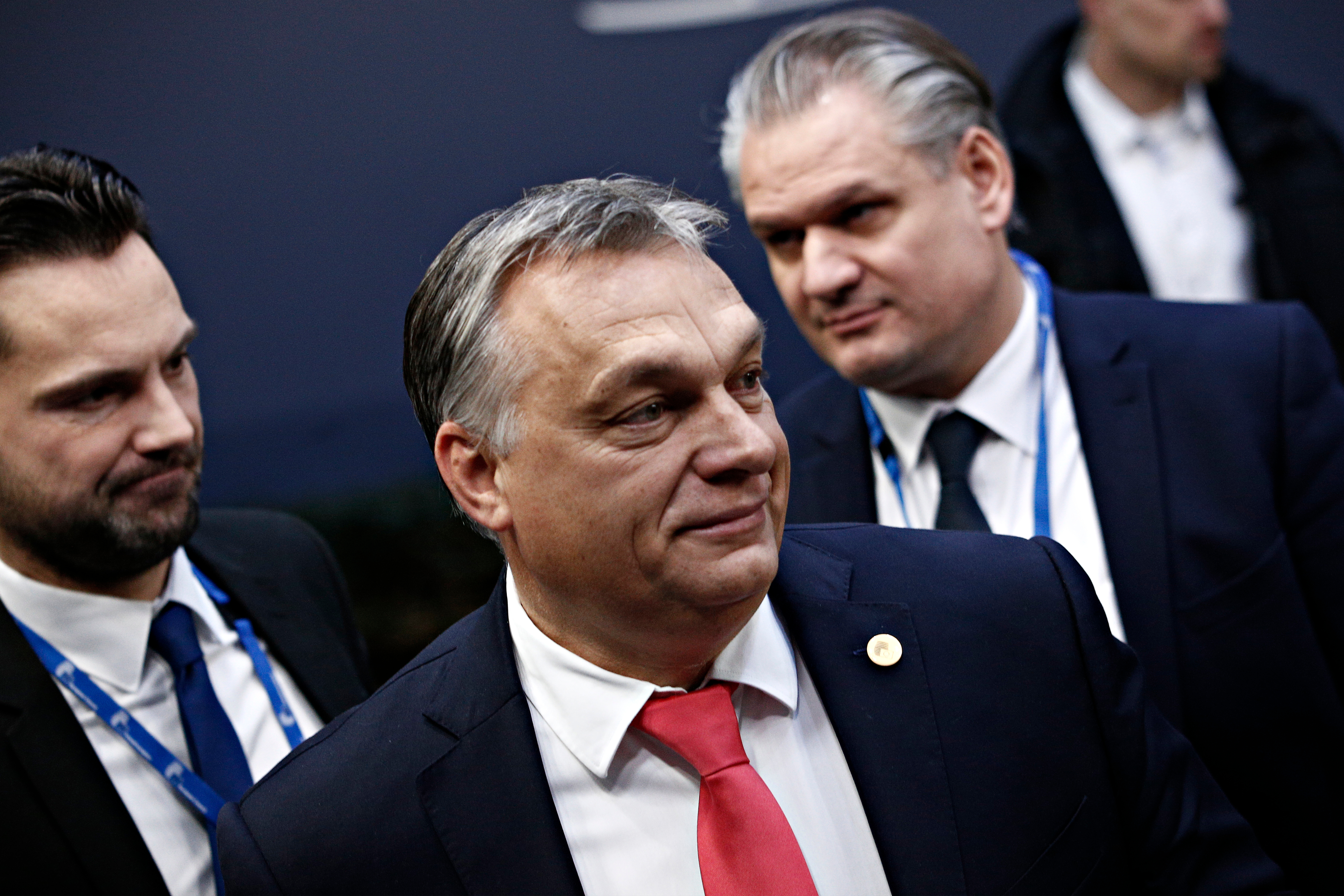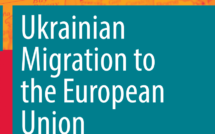

This is part of our special feature on Anxiety Culture.
Turbulence has become the dominant paradigm of present-day politics and causes numerous anxieties that resonate within the liberal world. Making sense of and adapting to rapid, disruptive transformation and the subsequent contestation of political orders creates the space and a favorable societal context for populist political entrepreneurs, domestically and abroad. Economic imbalances, inequality in participation and access, and the resulting frustration because of impediments to self-realization for large parts of the population, pave the way for populists and radical parties to capitalize on real and existential or diffused and constructed fears. Disgruntled citizens feel that they are being left behind and that their identities and traditional, local cultures are in danger, due to the mega-trends of globalization, digitalization, acceleration, and the commodification of all areas of life.
In the midst of such political fluidity, nationalist and populist discourses have gained momentum in the Western world, equally in America and Europe. Brexit-Britain, Hungary, Poland, Austria, and most recently Italy, are cases in point, and in the United States, the new “America first” doctrine finds its expression in the unfolding trade war with Europe and China. Equal emphasis has been given by the current US administration to secure the American nation from the dangerous outsider that is ethnically different. The initiative for prohibiting nationals of specific Muslim countries from stepping on American soil or, more recently, the heartbreaking images of the separation of children from their parents, when arriving to the US, come as evidence, not of a nation under attack, but of a nation under fear. On a similar note, the EU has grown increasingly afraid of the growing waves of refugees and both EU institutions and member states are considerably stepping up their efforts to control the irregularity of migration flows.
Anxiety is a very powerful emotion; its political ramifications are not to be underestimated. The public’s fear of the contemporary socio-political developments has been accompanied by a nostalgic reminiscence of glorious pasts of nations. Nationalism both fosters an affection towards the nation’s past as well as an aversion towards present change and challenges, as well as the demands of flexibility and adaptation. It is at this point that nationalist discourses meet conservatism both as a political ideology and as a way of life. Sociologists and political scientists converge that turbulence and crisis can render citizens more prone to conservative socio-political choices. The prevalence of conservative political parties in recent elections in the US and Western Europe indicate that citizens turn to conservative political ideas, deeming that the latter can secure our modern way of life from the change that often comes from outside and is most of the times anthropologically and ethnologically different from us.
What is more, divides between internal, nationally homogenous, increasingly conservative political spaces and the precarious, unruly “outside” have been widely articulated by populist political parties. Populism draws on a sharp dichotomy between the “pure.” homogenous people versus the establishment and its corrupted, “globalist” elites. Ergo, “the people” becomes the main political agent – if not the only one – in populist politics and the dominant voice of society. Nuances do exist, nonetheless. Left-wing populism is often inclusive and progressive, whereas right-wing populism is exclusive and conservative. The narratives of President Trump in the US as well as the Italian government alliance between the Five-Star Movement (M5S) and the Lega, the National Front in France, the Freedom Party (PVV) in the Netherlands or in Austria (FPÖ), and the Alternative for Germany (AfD) demonstrate a populist discourse that is underpinned by nationalistic narratives, almost reaching xenophobia and racism. Such political developments make us wonder whether the linkage of populism with liberal democracy is vicious or unavoidable.
Overall, it would seem that a global wave of populism has been sweeping not only over the Western world but also from Russia and Turkey, to several African and central-Asian countries, the Philippines, Venezuela, and, to some extent, China. Anxiety, alienation, and disillusionment are channeled into a new form of identity politics that simplifies, polarizes, and promises solutions in the return of an idealized past. This is, roughly speaking, the currently rather successful business model of “dys-topists” and “retro-pists,” domestically as well as internationally. According to recent data by the Economist, democracy has been regressing in eighty-nine countries in 2017, against improvements measured only in twenty-seven states.[1] The figures illustrate the retreat of American and European ideological dominance, in parallel to the decline of Western politico-economic superiority. And with Donald Trump at the helm, having abdicated from the role of the leader of the free world, the dismantling of US soft-power is being engineered from within, right at the center of imperial hegemony.
Facts as artefacts
Populist and anti-democratic tendencies in the West give rise to speculations about the end of the liberal political order, and some see a period of transition and the emergence of a more turbulent, instable and “messy” international system. In the face of worldwide contestation, it is rather clear that the issue of justice needs to be discussed globally – just as the conditions of production and consumption are global. The return to the nation state appears to be a somewhat paradoxical answer, when it is precisely nationalistic and anti-democratic tendencies in third-countries that contribute to the migratory pressure on Europe. At the end of the day, there is no “we” and “they” – there is only a fragmented and asymmetric world-interior, where forward-oriented solutions to global inequality and conflict are urgently required to effectively oppose such fear-mongering and polarization.
It is not a coincidence, but in the DNA of the capitalist economic system that commodification expands to the world of information, facts and truths – these have been transformed into goods, nearly like any other: If a certain truth on offer meets enough demand, it will be highly desirable. Those who can, create their own facts and those who can afford, buy their own truths. At present, information and facts are among the most traded commodities – mining, processing and analysis of data is highly lucrative and contributes to the production of a “counter-reality” in which all sorts of simplification, manipulation and conspiracy theories blossom. This use of digitalization and the subsequent fabrication of truth are threatening the foundations of representative democracy, namely trust in the institutions and processes of self-government by undermining informed discussion where there is agreement on basic facts.
From a practical perspective, such political developments force us to reflect on how much leeway national and supranational bureaucracies indeed have to accommodate turbulence and crisis and promote transformation and adaptation. Anxiety, crisis, and security discourses have already left their marks on EU policy making. The focus of attention in the current EU budget and reform debate is clearly on securing external borders and protecting Europe from outside threats. The EU member-states’ reactions to the refugee crisis is a strong example of how populist domestic politics have narrowed down the policy options of EU institutions. The massive fear-production clearly limits the room for maneuver of decision-makers, and intelligence suggests that this is a deliberate strategy of forces controlled by Russia and Turkey who are behind the manipulation of public opinion. Therefore, instead of trying to become more nationalist than its member states, the EU needs to address urgent regulation tasks with regard to extraction, processing and trading of data.
These trends play in each other’s hands and they mutually echo and reinforce each other – anxiety, manipulation, and informational inconsistency produce “hybrid truths” and contribute to the availability, synchronicity and “consumability” of alternative facts. Thus, it does not really come as a surprise that facts and truth have become a merchandize where information is a product to be traded and consumed. As a consequence of the hyper-commodification, life-marketeering and digitalization, the data market has turned in one of the most vibrant economic sectors. Information of all sorts, private and personal included, is seen as business opportunity, and data collection, mining and exchange – including engineering, manipulation and the production of alternative facts – open the doors to “truth” plainly becoming a life-style good.
The effect of such fear-propaganda is that EU countries are much more concerned with themselves than with pressing global governance issues, which in turn leaves many problems unaddressed and feeds grievances and contestation. Insecurity and doubt force European societies to focus on themselves instead of taking on crucial global governance tasks. The EU’s role as international actor, has frequently been described as a “civilian power,” “ethical power,” or a “normative power. The question is whether or not the EU can and should become a “standard-setting power” in regulating IT giants and the new “information-oligarchs.” In the digital age, fighting the misuse of data and protecting societies against hostile interference via regulation and taxation of information-trade are among the key governance projects for Europe’s ordo-liberal system. Responding to this call is necessary to address citizens’ anxieties related to the effects of digitalization on all aspects of life, not only in the area of data protection and privacy but also with regard to the transformation of the economy and the future of work.
Utopia vs. ‘Retropia’: Global common good policies vs. isolationist renationalization
European unity is being challenged both internally and externally, and the legitimacy of the EU is being fundamentally questioned by the citizenry. A key driver for this sentiment is that many citizens believe that the Union has failed to live up to its core pledges. Whereas globalization has brought great opportunities and benefits, significant parts of the European population have lost out from this process. Unemployment, stagnating wages, and rising inequality have added to citizens’ alienation and sentiments of being left behind. The sense that the prevailing economic arrangements are profoundly unfair to ordinary people, and that their children will end up poorer than themselves, is driving many people toward extreme political choices.
In the face of shifting patterns of cooperation, a new turn towards unilateralism and protectionism, the EU reiterates previous commitments to a multilateral and rules-based trade system. Europe very much depends on a global multilateral order, in all aspects of international cooperation. At present, however, the security discourse with a twist on preventing migration to Europe is dominating the EU reform debate. Tripling the budget for border management, a ten-fold increase of Frontex-staff and the plan to establish “disembarkation platforms” for migrants in North-African countries are unmistakably clear signals in this respect – and impressive further steps in the direction of the EU taking on core state responsibilities. This represents fundamental change of course and will profoundly affect the nature and the value-base of the Union.
The incumbent Austrian EU presidency has already placed the protection of the EU’s external borders prominently on its agenda, trying to assemble partners for a more restrictive asylum policy in what has been awkwardly termed the “axis of the willing.” Meanwhile, several urgent issues remain unresolved, such as the transformation of the global economic and financial system to include policies directed at alleviating inequality and furthering the protection of the environment and climate change mitigation as main objectives.
EU external relations extend far beyond foreign, security and defense policy, and encompass a wider variety of areas including development cooperation, neighborhood policy, trade, environment, energy, immigration and asylum policy, border management, police and justice. These policies are all currently part of EU external action. Virtually in all fields of transnational public policy the UK’s departure from the Union will be felt and will have to be dealt with. Most likely, this could occur by allowing for more flexibility facilitating an ever more differentiated Union to avoid further disintegration of Europe. After the UK’s departure and a reinvigorated Franco-German leadership, also discussions about a political and social union are back on the agenda to resuscitate EU integration, combining both integrated and differentiated governance structures for security and defense, Schengen and the Eurozone, including a progressive alignment of fiscal and economic policies.
Even if the perspective of a multi-speed Union or an “ever more differentiated Europe” is the most likely outcome of the current contestation of Europe’s political order, it is not clear what such a variable geometry would mean for the EU. The price to pay is, most likely, fragmentation, in terms of differentiation between member states, as well as further segmentation of Europe. Segmentation refers to how a political order is divided into distinct functional domains that, on the one hand, extends across institutional boundaries and, on the other, are configured in such a manner as to hamper overall system coordination. Segmentation introduces a specific cognitive bias with regard to the way of framing problems and shaping solutions, and, more generally, points to a lack of coordination between policy sectors or domains. A segmented political system is characterized by divisions between functional domains, by a simultaneous tendency towards vertical fusion and horizontal separation. The EU structure fosters two forms of segmental logics: neo-liberal market logics and securitization. In the medium and longer term, both these dominant trends are likely to further aggravate the EU’s crisis.
What is required to strengthen Europe’s resilience, is, therefore, investment in the robustness of EU institutions. In the external policy domain, Europe would need to show more proactive and engaged leadership, bolster its cooperation and coordination capacities, and work together in regulating digitalization. Also, as a remedy for further segmentation of a crisis-ridden EU, the work on social policies to balance the effects of the neo-liberal system should become a central concern for Brussels. Putting inclusive and sustainable economic growth, social justice and the equitable distribution of opportunities at the heart of a common vision for Europe, internally as well as externally in dealing with its partner countries, is precisely in the interests of those member states in which skepticism is most pronounced. At the end of the day, resilience may well be about Europe’s capacity to adapt to turbulence and crisis and to enable the institutions to more dynamically cope with citizens’ anxieties.
Dr. Thomas Henökl works as Associate Professor of Public Policy at the University of Agder (Norway), and Senior Research Associate at the German Development Institute in Bonn. His interests lie in the fields of European politics, public administration, EU foreign and security policy, international cooperation and development, and more widely on comparative politics and organization theory. Previously, Thomas Henökl worked for the European Commission, DG Relex (from 2011 the European External Action Service), and at the European Institute of Public Administration (EIPA). Thomas has a PhD in Political Science from the University of Agder (Norway), as well as three Masters’ degrees in Political Science, European Public Policy, and Public Administration from the University of Innsbruck (Austria), the Institut d’Etudes Politiques (Sciences-po), Paris, and the Graduate School of Public Administration at the International Christian University, Tokyo.
Photo: Viktor Orban, Hungary’s prime minister arrives for a meeting with European Union leaders in Brussels, Belgium on Dec. 15, 2017
Published on July 2, 2018.
[1] https://www.economist.com/international/2018/06/14/after-decades-of-triumph-democracy-is-losing-ground




